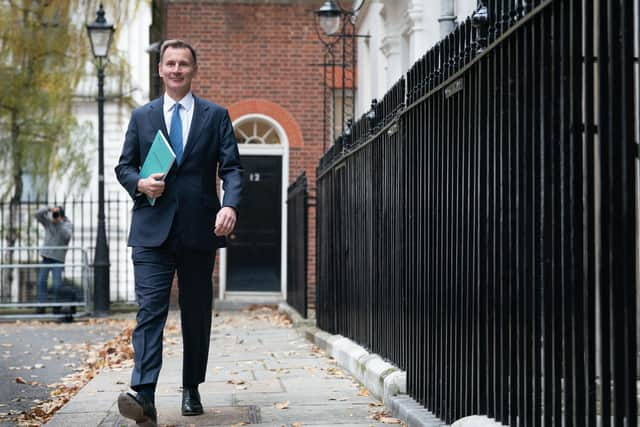The mining community experience exposes the Tories’ ‘levelling up’ agenda as a cruel sham - Jon Trickett
Our public services will be further weakened. And further massive damage will be inflicted on our regions and nations.
In terms of their electoral strategy it is clear that they have abandoned the so-called key seats in the North of England and the Midlands. Take the former coalfield communities like the one I represent.
Advertisement
Hide AdAdvertisement
Hide AdIt’s now 40 years since the Miners’ Strike. 5.7 million people live in former coalfield communities. Larger than in countries like Finland or Norway. Decades after the strike we are still suffering the impact of deindustrialisation fueled by a London centric neoliberal economic orthodoxy.


For example, in the former coalfields, average earnings for men are 8 per cent below the national average, and 10 per cent below for women.
Since the financial crisis there has been a 7.6 per cent increase in the number of jobs in the former coalfields compared to 9.8 per cent in the main regional cities and 14.7 per cent in London.
Only 30 per cent of the residents of the former coalfields have degree-level qualifications, compared to the GB average of 39 per cent, in London it’s over 50 per cent.
Advertisement
Hide AdAdvertisement
Hide AdMore than half, 53 per cent, of all employed residents in the former coalfields work in manual jobs, compared to a GB average of 44 per cent. The mining community experience exposes the Tories’ “levelling up” agenda as a cruel sham.
Yet, despite the need to rebalance the economy and invest they are touting further tax giveaways in the upcoming Chancellor’s March Budget. They claim that they have found financial headroom. But even the guardians of economic orthodoxy know that this budget strategy is a con-trick.
For example, the head of the OBR recently said: “Some people call (OBR estimates) a work of fiction, but that is probably being generous when someone has bothered to write a work of fiction and the government hasn’t even bothered to write down what its departmental spending plans are underpinning the plans for public services.”
This slightly odd metaphor only partly illuminates what the government is doing. They are hiding how they intend to pay for their so-called giveaway budget.
Advertisement
Hide AdAdvertisement
Hide AdThe reality is that they intend to pay for tax cuts with austerity economics so severe that even the IMF have argued it is a dangerous path to tread.
The FT reported Pierre-Olivier Gourinchas, IMF chief economist, telling them that the UK’s focus should be on “the path towards a fiscal consolidation” despite expectations that Hunt will cut taxes at his spring Budget. He recommended that the Chancellor should focus on the country’s ‘spending needs’. The IMF economist also pointed out that while the world economy is due to grow by 3.1 per cent this year, growth in the UK will be one of the lowest at 0.6 per cent.
Meanwhile, the Research Director at the Resolution Foundation has said that ”it’s increasingly clear that spending plans pencilled in for after the next election cannot be delivered”. Let’s put it in a simpler language. Sunak wants tax giveaways in April and to pay from them by further cuts to our public services after the election and on the back of a stagnating economy.
There is obvious danger here too for an incoming Labour government inheriting lower taxes and savage public expenditure plans.
Advertisement
Hide AdAdvertisement
Hide AdIt will be Britain's impoverished regions outside of London and the South East that will be hit the hardest by the Government’s plans. It isn't difficult to see why.
First, these regions are marked by low pay and low productivity created by deindustrialisation and a subsequent failure to invest. Second, widespread poverty and poor health demand better public services. Third, these regions are heavily dependent on public sector employment but austerity normally requires job losses in the public sector.
We need an end to this government and its lopsided and flawed economic model. There are over 20 million citizens in the North and Midlands, which is larger than most EU countries. Within England - these regions have suffered the most. In Wales, Scotland and Northern Ireland the same problems apply. Our regions and nations ought to be at the core of a drive for fundamental change.
But this is not an argument against the interests of more prosperous areas in the South East and in London. On the contrary, there are large areas of deep inequality and the public services are equally stretched. Furthermore, if we release the untapped potential outside London and the South then the whole country will benefit.
National renewal demands that we put an end once and for all to a failed and dangerous experiment.
Jon Trickett is the Labour MP for Hemsworth.
Comment Guidelines
National World encourages reader discussion on our stories. User feedback, insights and back-and-forth exchanges add a rich layer of context to reporting. Please review our Community Guidelines before commenting.